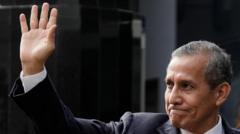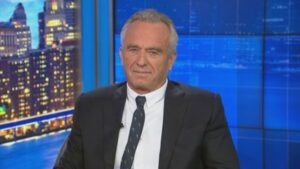Moon’s alleged corruption ties stem from a former family connection to a now-closed airline, leading to further implications and debates over governance integrity.
Former South Korea President Moon Jae-in Indicted on Bribery Charges

Former South Korea President Moon Jae-in Indicted on Bribery Charges
The indictment of Moon Jae-in adds to the tradition of political leaders facing scrutiny, intensifying South Korea's political divisions.
Former President Moon Jae-in of South Korea has been indicted on bribery charges, marking him as the latest in a series of former leaders to encounter criminal prosecution in the politically volatile nation. The indictment, announced on Thursday, revolves around allegations connected to the employment of Moon's former son-in-law at a now-defunct budget airline in Thailand, where it is claimed he received approximately 217 million won ($150,000) in salary and benefits from 2018 to 2020.
Prosecutors from Jeonju, south of Seoul, argue that the funds were essentially a bribe paid to Moon by Lee Sang-jik, a businessman and former lawmaker who administered the airline. They allege that Mr. Lee offered the son-in-law a position as a favor to the Moon family, despite the son-in-law's lack of qualifications for the job. Under Moon's administration, Lee held a significant government position focused on small business promotion, further complicating the web of accusations against him. Lee's political career has been marred by his arrest and subsequent conviction for embezzlement and violations of election laws.
Evidence suggests that Moon's presidential staff played an active role in arranging employment for his son-in-law, which raises concerns about the ethical implications of political influence in private enterprise. As the investigation unfolds, reactions are expected to amplify the already heightened political tensions within South Korea, igniting debates over legal accountability for public officials.
Prosecutors from Jeonju, south of Seoul, argue that the funds were essentially a bribe paid to Moon by Lee Sang-jik, a businessman and former lawmaker who administered the airline. They allege that Mr. Lee offered the son-in-law a position as a favor to the Moon family, despite the son-in-law's lack of qualifications for the job. Under Moon's administration, Lee held a significant government position focused on small business promotion, further complicating the web of accusations against him. Lee's political career has been marred by his arrest and subsequent conviction for embezzlement and violations of election laws.
Evidence suggests that Moon's presidential staff played an active role in arranging employment for his son-in-law, which raises concerns about the ethical implications of political influence in private enterprise. As the investigation unfolds, reactions are expected to amplify the already heightened political tensions within South Korea, igniting debates over legal accountability for public officials.






















